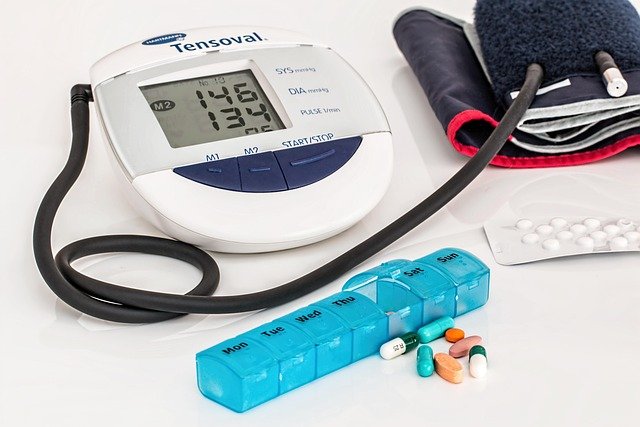Exploring Different Cholesterol Treatment Options: What You Need to Know
High cholesterol is a common health concern that affects millions of people worldwide. Left untreated, it can lead to serious cardiovascular issues. Fortunately, there are numerous treatment options available to help manage and reduce cholesterol levels. This article explores various cholesterol treatment approaches, from lifestyle changes to medication, providing you with the knowledge to make informed decisions about your heart health.

What are the first steps in treating high cholesterol?
The initial approach to treating high cholesterol often involves lifestyle modifications. These changes can have a significant impact on cholesterol levels and overall heart health. Some key steps include:
-
Adopting a heart-healthy diet: Focus on consuming foods low in saturated and trans fats, such as fruits, vegetables, whole grains, and lean proteins.
-
Regular exercise: Aim for at least 150 minutes of moderate-intensity aerobic activity or 75 minutes of vigorous-intensity aerobic activity per week.
-
Weight management: Maintaining a healthy weight can help lower LDL (bad) cholesterol and increase HDL (good) cholesterol.
-
Quitting smoking: Smoking lowers HDL cholesterol and increases the risk of heart disease.
-
Limiting alcohol consumption: Excessive alcohol intake can raise cholesterol levels and contribute to liver problems.
How effective are statins in treating high cholesterol?
Statins are often considered the gold standard in cholesterol-lowering medications. They work by blocking a substance your body needs to make cholesterol, effectively reducing LDL cholesterol and triglycerides while slightly increasing HDL cholesterol. Some commonly prescribed statins include:
-
Atorvastatin (Lipitor)
-
Rosuvastatin (Crestor)
-
Simvastatin (Zocor)
-
Pravastatin (Pravachol)
Studies have shown that statins can lower LDL cholesterol by 20% to 55%, depending on the specific medication and dosage. They are generally well-tolerated, but some people may experience side effects such as muscle pain or liver problems.
What non-statin medications are available for cholesterol treatment?
While statins are the most commonly prescribed cholesterol-lowering drugs, there are several non-statin options available for those who cannot tolerate statins or need additional treatment:
-
Bile acid sequestrants: These medications work by binding to bile acids in the intestines, indirectly lowering cholesterol levels.
-
Cholesterol absorption inhibitors: These drugs reduce the absorption of cholesterol from the small intestine.
-
PCSK9 inhibitors: These newer injectable medications help the liver remove more LDL cholesterol from the blood.
-
Fibrates: These drugs primarily lower triglycerides and may slightly increase HDL cholesterol.
-
Niacin: This B vitamin can help raise HDL cholesterol and lower triglycerides.
Are there natural supplements that can help lower cholesterol?
Some natural supplements have shown promise in helping to manage cholesterol levels. However, it’s important to note that these should not replace prescribed medications or lifestyle changes. Some popular natural options include:
-
Fish oil: Rich in omega-3 fatty acids, fish oil may help lower triglycerides and increase HDL cholesterol.
-
Plant sterols and stanols: These naturally occurring compounds can help block cholesterol absorption in the intestines.
-
Soluble fiber supplements: Psyllium and other soluble fibers can help lower LDL cholesterol.
-
Red yeast rice: This supplement contains compounds similar to statins but should be used with caution due to potential side effects.
-
Garlic: Some studies suggest that garlic supplements may have modest cholesterol-lowering effects.
Always consult with your healthcare provider before starting any supplement regimen, as some may interact with medications or have side effects.
What innovative cholesterol treatments are on the horizon?
The field of cholesterol management is continuously evolving, with researchers exploring new treatment options. Some promising developments include:
-
Gene therapy: Scientists are investigating ways to modify genes involved in cholesterol metabolism to provide long-lasting cholesterol control.
-
RNA interference therapies: These treatments aim to silence genes responsible for producing proteins that raise LDL cholesterol levels.
-
Bempedoic acid: This newly approved medication offers an alternative for patients who cannot tolerate statins.
-
CETP inhibitors: These drugs are being studied for their potential to raise HDL cholesterol levels significantly.
-
Microbiome-based therapies: Researchers are exploring how manipulating gut bacteria could influence cholesterol levels.
How do different cholesterol treatments compare in effectiveness and cost?
When considering cholesterol treatment options, it’s important to weigh both effectiveness and cost. Here’s a comparison of some common treatments:
| Treatment | Effectiveness | Average Monthly Cost |
|---|---|---|
| Statins | 20-55% LDL reduction | $10-$200 |
| Ezetimibe | 15-20% LDL reduction | $30-$350 |
| PCSK9 inhibitors | 50-60% LDL reduction | $450-$600 |
| Bile acid sequestrants | 15-30% LDL reduction | $200-$400 |
| Fish oil (prescription) | 20-30% triglyceride reduction | $150-$300 |
| Plant sterols/stanols | 5-15% LDL reduction | $20-$35 |
Prices, rates, or cost estimates mentioned in this article are based on the latest available information but may change over time. Independent research is advised before making financial decisions.
In conclusion, managing high cholesterol involves a multifaceted approach, combining lifestyle changes with medication when necessary. While statins remain the primary pharmaceutical treatment, various alternatives and emerging therapies offer hope for those seeking different options. By working closely with healthcare providers and staying informed about the latest developments, individuals can find the most effective cholesterol treatment plan tailored to their unique needs and circumstances.
This article is for informational purposes only and should not be considered medical advice. Please consult a qualified healthcare professional for personalized guidance and treatment.




